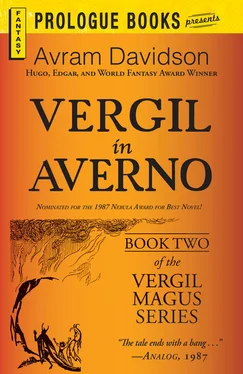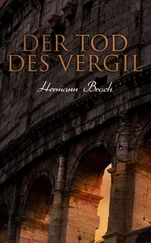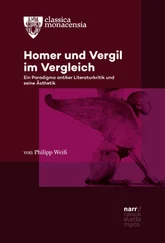Avram Davidson - Vergil in Averno
Здесь есть возможность читать онлайн «Avram Davidson - Vergil in Averno» весь текст электронной книги совершенно бесплатно (целиком полную версию без сокращений). В некоторых случаях можно слушать аудио, скачать через торрент в формате fb2 и присутствует краткое содержание. Жанр: Фэнтези, на английском языке. Описание произведения, (предисловие) а так же отзывы посетителей доступны на портале библиотеки ЛибКат.
- Название:Vergil in Averno
- Автор:
- Жанр:
- Год:неизвестен
- ISBN:нет данных
- Рейтинг книги:3 / 5. Голосов: 1
-
Избранное:Добавить в избранное
- Отзывы:
-
Ваша оценка:
- 60
- 1
- 2
- 3
- 4
- 5
Vergil in Averno: краткое содержание, описание и аннотация
Предлагаем к чтению аннотацию, описание, краткое содержание или предисловие (зависит от того, что написал сам автор книги «Vergil in Averno»). Если вы не нашли необходимую информацию о книге — напишите в комментариях, мы постараемся отыскать её.
Vergil in Averno — читать онлайн бесплатно полную книгу (весь текст) целиком
Ниже представлен текст книги, разбитый по страницам. Система сохранения места последней прочитанной страницы, позволяет с удобством читать онлайн бесплатно книгу «Vergil in Averno», без необходимости каждый раз заново искать на чём Вы остановились. Поставьте закладку, и сможете в любой момент перейти на страницу, на которой закончили чтение.
Интервал:
Закладка:
And this place, too, was marked. By night, with a certain sign in dark lead. By day, when day came, refreshed with paint of bright-red minium.
Sometimes, of course, as they had known would happen, the salamanders merely found their ways (naturally, but now, to Vergil, uselessly) to some of those many fires already visible and known and worked, and there would crawl quite fast into the glowing, roaring heart of such, there themselves to glow the selfsame fire color as the flames themselves; though from above unseen.
As for others, whenas either Iohan or Vergil or both came the following day to check, it happened more than once he or they found a trail as though left by some influorescent slug or snail; and would trace and follow, only to see the shining line disappear into the tiniest of tiny holes or the slimmest of cracks or fissures. Sometimes their feeling the ground thereat was rewarded with a feeling of fire or heat: a seal upon the chart, of a different sort than the other marks. Sometimes, of course, the temperature of the ground round about such cracks told them nothing to the touch. But the trail was there, the trail of the salamander, that creature born for fire as the frog is born for water. And they would know that some sense stronger by far than any sense of man had informed the salamander, had, as it were, beckoned it, had tempted and drawn it thither and in and down: and that, though they saw this not, they would know that somewhere in caverns below, in fires so far beneath and below the surface that the surface told no man aught, in the flaming depths of hell that lay beneath Averno those creatures reveled, awaiting their own transformation into fire and flame. These deepest places they had sought as certain fish seek the deepest pools.
But it was of the utmost importance that the salamanders being used were no older than their first year, for at that age, though their inclination toward the fire was fully developed, it was an inclination that must result in every one of them being gradually subsumed into the fire; within much less than one year would each atom of flesh be replaced by an atom of fire, and so, atom by atom, these fingerlings would, glowing, vanish into fire and flame. A salamander of the third year, however, though still provided with the same instinct, would have already passed a climacteric, visible to the eye (this climacteric) chiefly only as to the salamander’s size; prior to that the salamander “chick” would be to the true salamander as the tadpole to the true frog; only after that time would it be a true salamander: And the salamander, the true salamander, its skin by now proof against the searing flames, its inner heat transformed, contrarities clean reversed, sympathies changed into antipathies — the salamander thus transformed, in contrarity to all folk belief would not start a fire; it would by its mere presence, and weight for weight, atom for atom, put the fire out. And all this he had learned in Sidon, where he had studied fire.
And now and again on such nights, was the wind in the right quarter, or was the night quieter than most, or were they in some sound-pocket, kith to an echo chamber. . or whatever and why-ever. . they might hear the tambours beat and the cymbals clash and such other sounds and cries betimes they might hear as told them that Cadmus the King, Mad Cadmus, King of Averno and King of Fools, still danced in the mule market -
— and sometimes they would learn, by the direction of the cries and sounds of song and music, that not there alone did he dance. Not only there. At all.
At length:
Another look Vergil took at the master map. All was in order as it had been when last he looked not a second or so before; why had he so suddenly looked again that he could feel his head snap? What had he so suddenly seen, which he had either not seen before, or had not noticed, or -
There was Averno, there Baiae, there the Portus Julius, Cape Misenum, the Bay, down there Naples, Cumae not far off, off there the Isle of Goats, over here …
He heard that voice now among all voices men could ever hear, echoing as from a thousand chambers forth, and, echo ceasing as swift as if it had never been, voice speaking in that awful and awesome crooning that surely no man durst stand to listen to, save his heart was at least at that moment clean; he saw the words limned upon the map: Cumae …. How had he dared not have thought to visit her before daring to think, even, of coming here? Every tiniest hair he felt distinctly rise upon his flesh, large parts and small. Had they noticed, the magnates, looking at him there, whilst from every side the hammers smote the white-hot iron upon the hundred and the thousand anvils?. . whilst he stood here, here in this sullen mockery of a council chamber, the absurd and ugly frescoes peeling from the sullen walls?
“Have you — I suppose you have — must have — have you? The Sibyl. . consulted? You have, you, of course you have.” Did they see his lips a-tremble? Hear his voice quivering? “… consulted the Cumaean Sibyl?” One who had presented her prophetic Books to Tarquin the Proud when he had been king above the Senate and the People of Rome. He who had refused to pay her price. As if he had been haggling over the cost of a lard-sow. She who had without one complaint consigned all but one of the Books into her fire. He who had presently asked her present price. She who had told him what she had done and had told him that the price was for the one sole remaining Book what it had been for all the Books. He who had started from his chair so it fell crashing back, and in utmost haste pushed forth to pay it.
Vergil asked, the magnates answered. “Oh yes. Of course. This was almost the first thing.” Almost their voices seemed to grumble, How dare thee ask, there in the dingy hall on whose walls the dingy devils of Etruscany leered at malefactors, beaks like those of raptor-birds, and lunged and threatened with the tines of hay-forks. What artist had done this? Was he free or captive? What did it matter?
How the hot and sulfur-tainted air parched his tongue and dried his mouth. With his teeth he scraped spittle enough to swallow, and swallowed that he might ask another question. Before he could, however, one magnate fixed him with a low and lingering look. “She was not cheap,” said that one. With a lowering look, and one which accused.
“Ah. And. . Magnate. . what said the Sibyl …?”
The magnate now looked at him again. All the magnates looked up. Scribes and secretaries looked up, the scribes from their scrivening, the secretaries from their secrets — all looked at him. A pause.
He ventured, “What …” He fell silent.
Then, “What said the Sibyl? You ask us, Master, what the Sibyl said? What …” Some faced some others, asked among themselves. “He asks? He asks what the Sibyl said….” They shook their heavy heads, as though in bepuzzlement, befuddlement; they rumbled a bit together, more. Then they gestured one to be their spokesman, who half-arose, sat down. His face and gurgling voice seemed more to defend than accuse.
“Did indeed Master Vergil ask. . You ask us, Master: ‘ What did the Sibyl say?’ ”
“Yes.”
The gurgling voice seemed some troubled, but it answered, right then.
“Why, Master, she said to ask you.”
He heard that voice among all voices, then, as though echoing from a thousand chambers forth. Dux, Dominus, Magister, Magus.
The litter of the Legate Imperial had carried Vergil that time to the latter’s chambers; afterward it had carried him back. Now and then, not often, some magnate or other had lent him another, other, litter, litters; it had not seemed to him that they had done so ungrudgingly; furthermore, their litters smelled evil. There were times, places, he had needs go afoot. But now this day he remembered that there was the mare; he had of course never taken her to the fire-fields or slag-heaps or to any of the smoky or the stinking-steamy works; scarcely had he remembered her than he looked out his window and saw horse and horse-boy coming out into the street below.
Читать дальшеИнтервал:
Закладка:
Похожие книги на «Vergil in Averno»
Представляем Вашему вниманию похожие книги на «Vergil in Averno» списком для выбора. Мы отобрали схожую по названию и смыслу литературу в надежде предоставить читателям больше вариантов отыскать новые, интересные, ещё непрочитанные произведения.
Обсуждение, отзывы о книге «Vergil in Averno» и просто собственные мнения читателей. Оставьте ваши комментарии, напишите, что Вы думаете о произведении, его смысле или главных героях. Укажите что конкретно понравилось, а что нет, и почему Вы так считаете.












